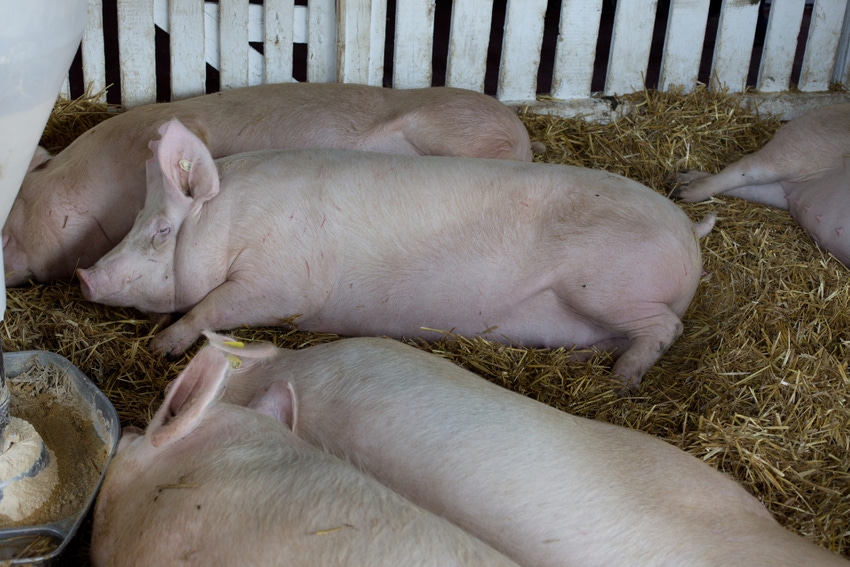EATS Act prohibits states and local governments from regulating production or manufacturing standards to other states.

As the courts continue to uphold the state of California from imposing its production standards on livestock producers not only in the state, but nationwide, a handful of senators are stepping up in hopes of limiting taking their own actions to prevent individual states’ reign over others.
Senators Roger Marshall, M.D., R-Kan., Chuck Grassley, R-Iowa, Joni Ernst, R-Iowa, John Cornyn, R-Texas, and Cindy Hyde-Smith, R-Miss., introduced the Exposing Agricultural Trade Suppression (EATS) Act to prohibit state and local government from interfering with the production or manufacture of agricultural products in other states.
Over 20 states challenged California’s Proposition 12 which would require that meat products raised outside the state still conform to the animal productions standards adopted by California under the guise of “public health.” Unfortunately, on appeal the Supreme Court denied cert and shortly thereafter the 9th Circuit Court of Appeals rejected a separate pork industry lawsuit against Prop. 12. Several other states have adopted or contemplated laws that would impact the agricultural production outside their state.
The Commerce Clause of the Constitution of the United States provides the federal government with the duty to regulate interstate commerce. Consistent with that duty, the Exposing Agricultural Trade Suppression Act prevents states from impeding agricultural trade from other states within the United States. State and local units of government will still be able to regulate farming and ranching within their own state, however, this legislation prevents the states from impeding trade from fellow states.
Related: NPPC, AFBF challenge of California’s Prop 12 fails
“It’s simply unacceptable that the federal government has spent decades breaking down non-tariff trade barriers to promote free trade with other nations while our own states impede free trade within the United States,” says Marshall. “We simply can’t allow radical state laws to dictate the agricultural practices of the rest of the nation especially in a way that will only increase food costs for the food insecure and drive farmers and ranchers out of business.”
In California, there are an estimated 8,000 breeding sows and 1,500 out of California’s 8,000 sows are used in commercial breeding which produces around 30,000 offspring a year. The offspring of approximately 673,000 sows is required to satisfy California consumers’ demand for pork meat annually, according to a court challenge against Prop 12. Plaintiffs claim that by imposing these requirements on an industry that is national in scope, Proposition 12 unconstitutionally interferes with the functioning of a $26 billion a year interstate industry.
“I don’t know why anyone would want to live in a state where it’s almost impossible to buy bacon. But California wants to impose such a rule on its residents,” says Grassley. “Iowa has an abundance of agricultural products to offer and folks from coast to coast should be able to enjoy them. I’m glad to sponsor this bill which will protect Iowa farmers and producers and allow them the freedom to operate their farms as they see fit.”
Hyde-Smith says, “This pro-ag, pro-jobs legislation would establish a federal standard that fosters greater interstate commerce among states without interference from activist city or state governments.”
Beginning December 31, 2021, Proposition 12 requires each sow whose offspring is intended to be sold into California be allotted at least 24 square feet in the group pen.
National Pork Producers Council Communications Director Rachel Gantz says NPPC supports this timely and highly important legislation. Gantz says preventing other states from imposing similarly harmful rules will benefit both agriculture producers and consumers throughout the country.
“Through Proposition 12, California--which lacks any meaningful hog production--is seeking to regulate how farmers across the country operate, imposing onerous regulations, inspection and permitting requirements, and highly prescriptive measures on pork producers,” Gantz says. “Meantime, the rule will dramatically reduce the supply of pork to Californians, driving up prices for consumers and removing an affordable source of protein for millions of hard-working families in the state.”
About the Author(s)
You May Also Like


.png?width=300&auto=webp&quality=80&disable=upscale)


